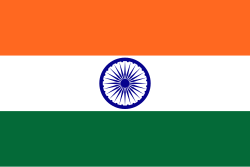| India at the 1952 Summer Olympics | |
|---|---|
 | |
| IOC code | IND |
| NOC | Indian Olympic Association |
| in Helsinki | |
| Competitors | 64 (60 men, 4 women) in 11 sports |
| Flag bearer | Balbir Singh Sr. |
| Medals Ranked 26th |
|
| Summer Olympics appearances (overview) | |
India competed at the 1952 Summer Olympics in Helsinki, Finland. 64 competitors, 60 men and 4 women, took part in 42 events in 11 sports. [1] This marked the second time India had competed as an independent republic.